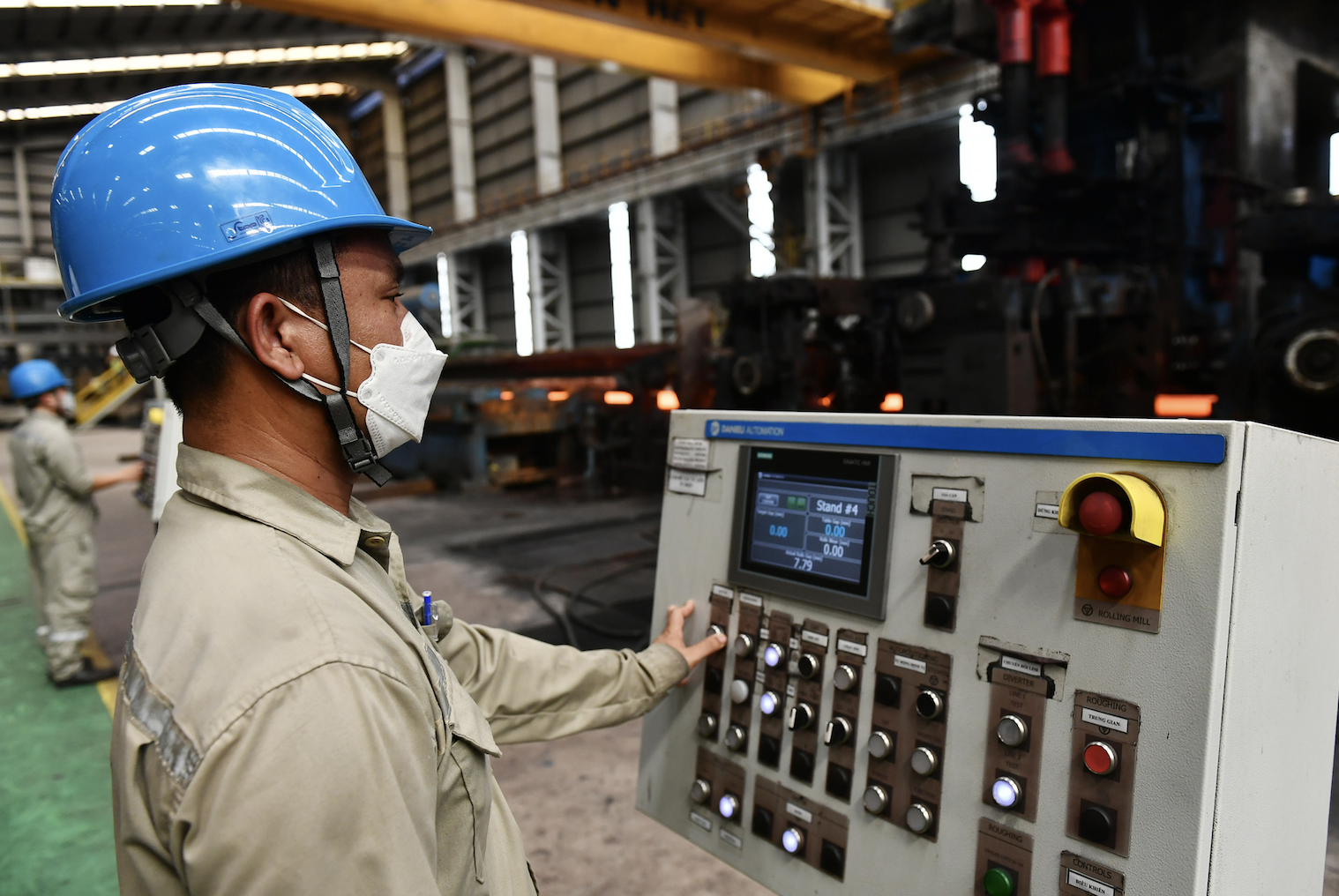Despite their growing contributions to Vietnam’s economy, private sector enterprises still face a range of institutional barriers. Many are now calling for equal treatment, transparency, and a supportive investment climate to truly thrive and expand.
Still lacking commensurate support

AMACCAO, a multi-industry private economic group with a 30-year history, has established dozens of industrial and consumer brands, created nearly 6,000 jobs, and participated in key national projects. The company has taken the lead in green, circular, and digital economy initiatives, aiming to generate and retain foreign exchange for Vietnam.
News of Resolution 68 on private sector development, issued by the Politburo, was met with enthusiasm by AMACCAO’s leadership, who were pleased to see the private sector recognized as a key driver of the economy.
Nguyen Van Vinh, General Director of AMACCAO, noted that Vietnam’s private sector has maintained an annual growth rate of 10-12% - nearly double the national GDP growth rate of 6%.
According to the General Statistics Office, by 2024 the private sector contributed around 50% of GDP, generated 30-40% of total state revenue, and provided employment to 85% of the national labor force. Labor productivity in the sector has also grown at an average rate of 9-10% per year.
These figures clearly reflect the private sector’s role as a pillar and a powerful engine of Vietnam’s economy.
However, Vinh emphasized that private businesses have not received policy support proportional to their contributions. In contrast, state-owned enterprises and foreign-invested firms often enjoy priority in terms of regulations, administrative procedures, and policy frameworks.
He cited examples where foreign investors were fast-tracked for investment approvals, construction permits, and tax incentives - privileges that are not as readily extended to domestic firms. Meanwhile, local businesses face numerous barriers, particularly in inspections and audits.
A 2024 survey found that 33% of private firms planned to expand operations within two years - up from 27% in 2023. Among FDI firms, that figure rose to 37%, compared to just 26% the year before.
Though the rebound is promising, it still falls short of pre-pandemic levels, when 50% of firms typically planned expansion. Moreover, businesses continue to grapple with new challenges - such as global economic fluctuations and new U.S. tariff policies emerging in early 2025.
According to the Vietnam Chamber of Commerce and Industry (VCCI), these circumstances underscore the need for stronger government action to improve the business environment, reinforcing the momentum of the private sector as “a lever for a prosperous Vietnam,” in line with recent remarks by Party General Secretary To Lam.
A level playing field for domestic and foreign firms

To help domestic firms grow and expand regionally, Vinh urged the government to push forward with more aggressive reforms to create a business climate marked by fairness and equality.
“We hope there will be no distinction between private and foreign enterprises. Whatever benefits FDI businesses receive, domestic companies should receive the same,” he said. He emphasized that tax incentives, approval timelines, and administrative processes should be simplified and streamlined.
Vinh believes Vietnamese firms are fully capable of delivering strong performance in areas like renewable energy, environmental services, manufacturing, infrastructure, and real estate - often matching or exceeding the efficiency of foreign companies. Only a few sectors, such as semiconductors and high-end electronics, still depend on advanced foreign technologies.
He also called for a reduction in bureaucratic red tape. “Many procedures are redundant, overlapping, and unnecessarily time-consuming,” he said.
With improved legal and institutional conditions, Vinh believes the Vietnamese private sector can thrive on the international stage and contribute significantly to the national economy.
A representative from another private firm pointed to a lingering “foreign superiority complex” among Vietnamese consumers and even some regulators, who tend to assume that foreign businesses are better, richer, or more beneficial.
This perception affects regulatory behavior, with foreign firms more often being courted, granted tax breaks, land incentives, and faster approvals - while local firms face longer, more complex processes and stricter scrutiny.
“This creates a sense of unfairness in the business environment,” the representative said.
Nguyen Viet Thang, CEO of Hoa Phat Group, expressed optimism about the government’s recognition of the private sector: “This is the first time we’ve seen the government regard private business as the most important economic component.”
Thang said Vietnam has rightly elevated the position of private enterprises, which now account for the largest share of the national economy.
However, for the private sector to truly break through, the government must go beyond administrative reform. It must build a comprehensive and supportive business ecosystem.
In the domestic market, policies are needed to ensure healthy competition. In key industries where the government seeks to foster large local conglomerates, appropriate protection measures should be implemented to support domestic production.
“Equally important,” Thang added, “is that the government provide clear economic directions so that businesses can design the most effective investment and production strategies. Only then can private firms stay aligned with national goals.”
Tam An